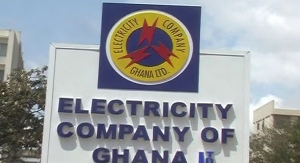Tamale, Sept. 17, GNA - Participants at a discussion in Tamale on the election of District Chief Executives have called for the need to amend the Local Government Law, Act (462) of 1993 to reduce the powers of DCEs to ensure more accountability in the local level governance system.
The participants also proposed that District Chief Executives should be nominated by the President and interviewed by Public Services Commission (PSC) and allow the people to directly elect them. Participants from the public, private, political party representatives, civil society groups and anti-corruption agencies drawn from the Upper East, Upper West and the Northern regions said this at a round table discussion on the election of DCEs organized by Ghana Ant-Corruption Coalition (GACC), a civil society organization facilitating anti-corruption activities in Ghana. GACC also sought to create a forum for interaction among the government, public and private sector institutions working in the area of anti-corruption to encourage the exchange and dissemination of information as well as joint sponsorship of programmes to achieve results.
The Tamale forum is one of three forums to be organized in the country to seek views on the election of DCEs. Most of the participants claimed that DCEs were having colossal powers and lord their positions on assembly members and were not accountable and answerable to any one in the assembly since they draw their powers from central government.
According to the participants if DCEs were directly elected by the people it would reduce the alleged bribery and corruption in the assemblies while "Arrogance and disrespect" for chiefs and Members of Parliament (MPs) as often exhibited by some DCEs would cease. While some participants argued that direct election of DCEs was time consuming and expensive and would slow down government business others were of the view that DCEs should also be elected alongside national elections.
After a heated debate the participants arrived at a consensus that DCEs should be nominated by the President, interviewed by PSC and directly elected by the people, a situation they said would reduce corruption in the assemblies.
Earlier, Mr. Stephen Sumani Nayina, Northern Regional Minister, expressed concern about heavy demands from assembly members in the region including the provision of mobile phones and receiving units for a year before they confirm DCEs.
He said "The situation is very embarrassing and it cuts across NDC and NPP. We should not pretend that all is well with the confirmation of DCEs. It is an unfavourable situation that we should all fight." He said if the trend continued DCEs would continue to be exposed to corruption since they would need money to recover what they lost and called on Assembly Members to remain patriotic and carry out their duties with patriotism to enhance development.
Mr. Kwamena Ahwoi, a lecturer at GIMPA who presented a paper on the district governance system, said it was not necessary for the direct election of DCEs since it would defeat the President's purpose. He said the NPP captured in its manifesto to elect DCEs and failed to do so in their eight years in office because the demerits overweighed the merits.
Mr Ahwoi said in advanced countries where DCEs were elected they generated their own revenue for development and paid the DCE which some districts in the country could not do. Mrs. Florence Denis, Executive Secretary of GACC, said whatever method that was adopted to choose a DCE, there should be the need to get someone who would be accountable to the people at the local level governance. She said some major parties in the country have advocated for the need to elect DCEs and stressed the importance to address such issues with expertise to enable Ghana to chart a path that would promote growth and development. 17 Sept 09
Politics of Thursday, 17 September 2009
Source: GNA
















